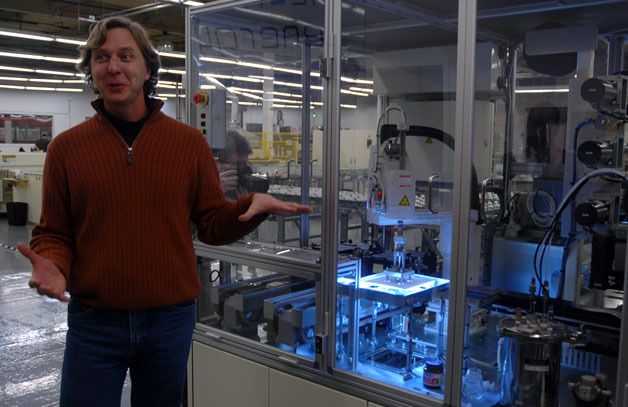MARYSVILLE — The possible coming of coal trains to Marysville invited the ire of Tulalip Tribal Chair Mel Sheldon Jr. and Silicon Energy President Gary Shaver during two separate and otherwise unrelated days of public statements.
During the public hearing for the proposed Gateway Pacific coal terminal on Thursday, Dec. 13, in Seattle, Sheldon emphasized his support for job creation while explaining his reasons for opposing a coal terminal that would add up to 18 round-trip trains per day through Marysville.
“This project proposes significant threats to our natural environment, including the contamination of our waters, lands and traditional foods, and the impact to air quality that not only affects my people, but everyone in the region,” said Sheldon, who echoed Marysville Mayor Jon Nehring’s oft-stated qualms with the additional traffic delays that the coal trains would cause at Marysville’s 11 at-grade railroad crossings. “Never will the Tulalip support the degradation of our ancestral burial grounds, as would result from this project.”
While Sheldon argued that such a coal terminal would put the Tribes’ treaty rights at risk, Shaver spoke with the press on Wednesday, Dec. 12, and deemed additional coal trains both an inconvenience to his business and unnecessary in light of companies such as Silicon Energy making such strides toward providing “green energy.”
Silicon Energy’s facilities sit between the east side of I-5 and the west side of the train tracks in North Marysville, which makes them especially vulnerable to the impact of additional train traffic. Moreover, Shaver touted his company’s attempts to maximize its domestic resources as healthier for the economy and the environment than shipping coal to China.
“Between its solar and hydroelectric potential, Washington state is in a unique position,” Shaver said. “It could turn 100 percent renewable in its energy. As I’ve heard this coal train talk, it’s struck me as going backward, from a business standpoint and technologically. I lived in China for two years. I know what its air quality is like. You do not want that.”



